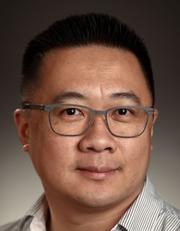
Jason Tchieu , PhD
Assistant Professor-Affiliate
Childrens Hospital Bldg R
405
COM Pediatrics Dev. Biology - 0054
Research and Practice Interests
Dr. Tchieu explores the therapeutic potential of human pluripotent stem cells (hPSCs). He has a desire to learn how to differentiate these cells into meaningful and specific cell types to study how disease progresses and joined the lab of Dr. Lorenz Studer. He had two separate projects using hPSCs to develop platforms to study early neurodevelopment. The first project was to develop strategies to efficiently and robustly generate the entire ectodermal lineage from hPSCs. They found that tiny changes growth factor concentration can switch the fate of particular lineages. This work utilized directed differentiation, small molecule screens, functional assays, and genome-editing to understand the mechanisms involved in generating the ectoderm. Afterwards, he focused on deriving developmentally late cells from the neuroectoderm. During development, neural stem cells (NSCs) will generate neurons first and glia late. The mechanisms involved in triggering the neurogenic-to-gliogenic switch remains unclear, especially in human systems. In humans, the switch to gliogenesis occurs approximately 37 weeks post conception. hPSC derived NSCs faithfully recapitulate this developmental program where the switch to gliogenesis occurs between 90-180 days of culture. He worked to understand the mechanisms behind the switch to gliogenesis and devised a strategy to bypass the early neurogenic phase, thus accelerating the differentiation of astrocytes from 90 days to 10 days from hPSC-derived NSCs. These accelerated hPSC-derived astrocytes are morphologically, molecularly, and functionally equivalent to astrocytes found in vivo. With this foundation, he aims to use these cells to uncover disease related mechanisms that could potentially transform therapies for neurodevelopmental disorders.